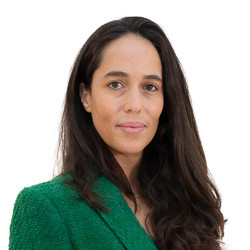Dominican Republic
The Context
Over the past 25 years, the Dominican Republic has had one of the strongest growth rates in Latin America and the Caribbean, mainly driven by construction, manufacturing and tourism. However, the COVID-19 pandemic stalled this trend and brought the country into recession. While poverty rates decreased in 2022, they have not yet returned to pre-pandemic levels.
Agriculture is the fourth-largest economic sector in the country. The Dominican Republic is one of the world’s foremost exporters of organic and fair-trade products, with about 14,000 organic growers.
Despite this, a lack of access to financial resources and outreach systems prevents small-scale farmers from adopting the technologies they need to increase their production and incomes, with many relying on supplemental non-farm income for survival.
This tropical island is vulnerable to climate change impacts and natural disasters, including soil erosion, agricultural losses, reduced water supply, biodiversity decline, coastal erosion and aquifer salinization.
The Strategy
IFAD enhances the well-being of the country's poor rural people, especially women and youth, by improving their income-earning capacity through employment opportunities.
Key activities include:
expanding access to markets through private sector partnerships;
improving access to climate change-adapted farming practices and technology;
increasing human capital and developing employment opportunities; and
engaging in policy dialogue and inter-institutional coordination to ensure changes are sustainable.
Country Facts
Almost one in ten people are employed in agriculture.
Dominican Republic has one of the highest rates of moderate or severe food insecurity in the region at 52.1 per cent.
One in three households could not afford a healthy diet in 2022.

